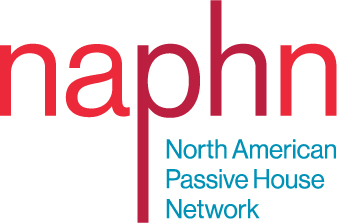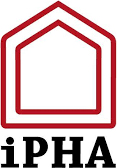NYStretch Energy Code – 2020 includes Section R408 Passive House
R408.1 General. Buildings shall comply with either Section R408.1.1 or R408.1.2 and shall comply with Section R408.2.
R408.1.1. Passive House Institute US (PHIUS) Approved Software. PHIUS+. Passive Building Standard – North America, where Specific Space Heat Demand and (sensible only) Cooling Demand, as modeled and field-verified by a Certified Passive House Consultant, is less than or equal to 9kBTU/ft2/year. The dwelling unit shall also be tested with a blower door and found to exhibit no more than 0.05 CFM50/ft2 or 0.08 CFM75/ft2 of air leakage.
R408.1.2 Passive House Institute (PHI) Approved Software. Passive House Institute: Low Energy Building Standard, where Specific Space Heating and (sensible only) Cooling Demand is less than or equal to 9.5 kBTU/ft2/year, as modeled and field-verified by a Certified Passive House Consultant. The dwelling unit shall also be tested with a blower door and found to exhibit an infiltration rate of no more than 1.0 air changes per hour under a pressure of 50 Pascals.
R408.2 Documentation
1. If using the PHIUS software:
Prior to the issuance of a building permit, the following items must be provided to the code official:
- A list of compliance features; and
- A statement that the estimated Specific Space Heat Demand is “based on plans.”
Prior to the issuance of a certificate of occupancy, the following item must be provided to the code official:
i. A copy of the final report submitted on a form that is approved to document compliance with PHIUS+ standards. Said report must indicate that the finished building achieves a Certified Passive House Consultant verified Specific Space Heat Demand of less than or equal to 9 kBTU/ft2/year.
NYStretch Energy Code 2020
Part 3 – Amendments to 2018 Energy Conservation Construction Code Residential Provisions 62
2. If using the PHI software:
Prior to the issuance of a building permit, the following items must be provided to the
code official:
i. A list of compliance features; and
ii. A statement that the estimated Specific Space Heating and Cooling Demand is
“based on plans.”
Prior to the issuance of a certificate of occupancy, the following item must be provided to
the code official:
i. A copy of the final report submitted on a form that is approved to document compliance with PHI standards. Said report must indicate that the finished building achieves a Certified Passive House Consultant verified Specific Space Heating or Cooling Demand is less than or equal to 9.5 kBTU/ft2/year.

























